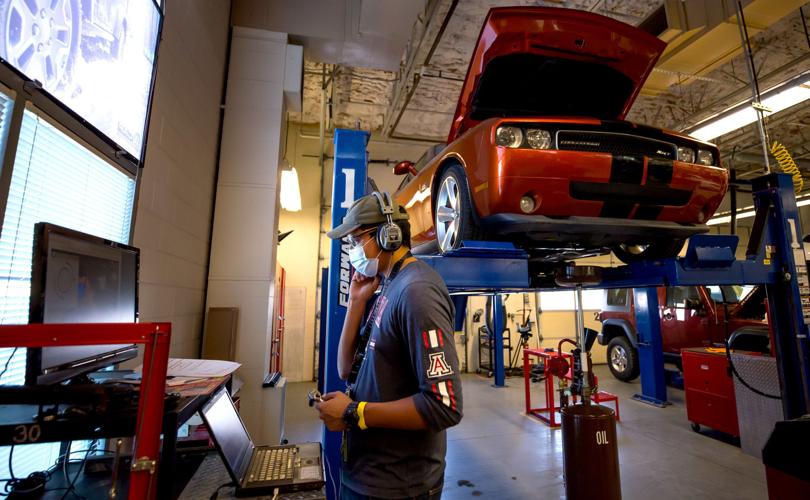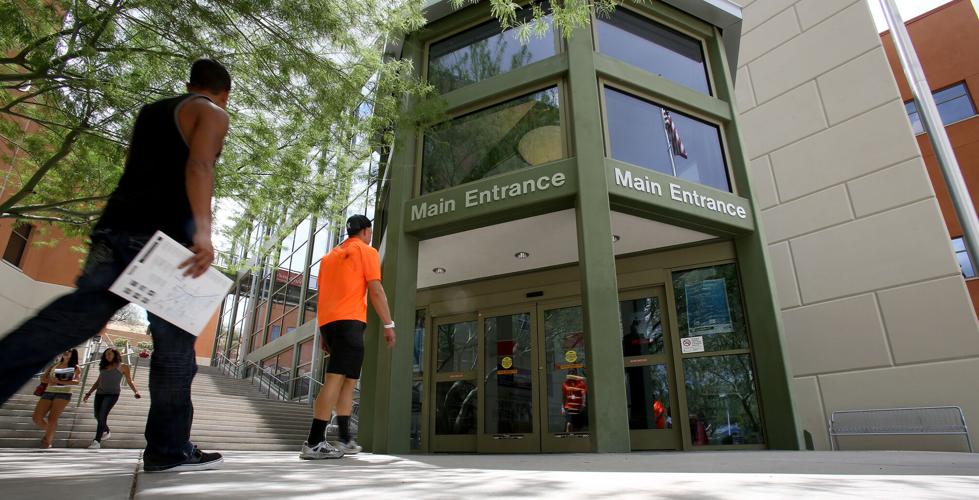This time last week Zahraa Hussein wasn’t sure what to do about a nearly $2,000 debt she owed to Pima Community College, or how it might derail her academic future.
Hussein, a junior who dreams of becoming an orthodontist, said the debt was the result of some confusion about her financial aid package. And regardless of why she had it, it was too high for her or her family to pay.
That also meant she, along with any other PCC student with an outstanding balance, wasn’t able to enroll in classes at PCC this semester. (An account balance also prevents students from receiving transcripts or obtaining certificates.)
“I didn’t want to give up something I’ve wanted for so long. Especially after I’ve worked so hard to get where I am right now,” said Hussein, who has long had plans to transfer to the University of Arizona to pursue a bachelor’s degree in biomedical sciences after completing her associate’s degree at PCC. “I really thought I was going to have to drop out and not continue. That was just the worst feeling.”
But that all changed for Hussein and approximately 4,500 other students at PCC in similar situations last week. That’s when the PCC Governing Board approved a motion to forgive $2.7 million in outstanding student balances accrued on or after March 13, 2020, effective immediately. According to PCC Chancellor Lee Lambert, 90% of students eligible for debt forgiveness fall into the high economic-need category and the majority identify as students of color.
The money to make PCC’s debt forgiveness program happen will come through a reimbursement from the federal Higher Education Emergency Relief Fund III, which is the $39.6 billion component of the American Rescue Plan intended to “serve students and ensure learning continues during the COVID-19 pandemic.”
Forgiving student debt accrued during the pandemic is a move colleges all over the country, including in Connecticut and South Carolina, have made in recent months
Last Friday, Hussein started crying when she got the news it was happening at PCC.
“It was very emotional for me,” she said.
With her balance cleared, Hussein is now enrolled in classes this semester at PCC and back on track to transfer to the UA this spring.
“I felt so relieved. Like finally, someone is trying to help.”
PCC enrollment down 19.7%
Nationally, the economic and health crises caused by the pandemic have made it even harder for community college students, who are historically lower-income and more likely to identify as first-generation students than their peers at four-year institutions, to access a college education.
And it shows in the enrollment numbers.
According to the most recent data from the National Student Clearinghouse, overall higher education enrollment dropped by 3.5% between spring 2020 and spring 2021. The community college sector, however, saw a 9.5% drop in that same time frame.
Preliminary local data from this fall semester indicates that trend is continuing.
Opposite the University of Arizona, which welcomed its largest first-year class ever Monday, PCC’s enrollment has dropped by 19.7% since fall 2019; It’s down by 5.4% since fall 2020.
“We serve a lot of older students, which means they typically have dependents they are financially responsible for,” said Norma Navarro-Castellanos, executive director of financial aid and scholarships at the college. With the heightened uncertainty of the pandemic, “There’s a reluctance there to come back to school and have to juggle that with meeting those other needs.”
Barrier removed
At the same time, Navarro-Castellanos said, the pandemic has dramatically increased the availability of federal funds colleges like PCC can use to support students. “This is in addition to the normal sources of federal aid we process for students, and it also doesn’t affect the other financial aid they’re receiving,” she said.
One of the major student support programs to come out of this unprecedented amount of federal funding is of course the debt forgiveness initiative. While students are not required to reenroll at PCC to have their balances cleared, Navarro-Castellanos said it removes a big barrier once preventing students from making the choice at all.
“We talk aspirationally about moving toward free community college,” PCC Governing Board Chair Demion Clinco said before the board approved the motion. “I know this is not it, but to me it really feels like we’re moving in the right direction.”
Clinco added that he wants the program to be about more than issuing checks, but rather a strategic opportunity to get students to reenroll.
When the college notifies students about forgiving the debt, it should take the opportunity to “find ways to let them know we’re here.” If they haven’t completed their courses at PCC, Clinco said, “we really want to find ways to get them through the programs to where they want to go.”





